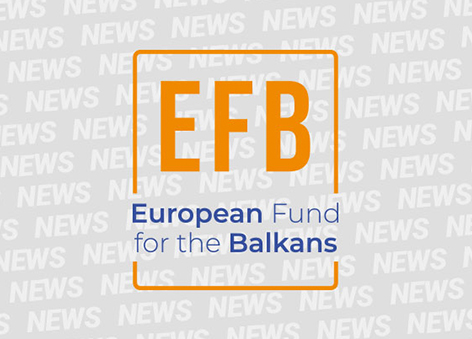Intensified relations with Washington D.C. are important for Serbia and its position between the great powers
Unlike its domestic policy, Serbia’s foreign policy is very successfully intensified and strategically quite well-thought out, assessed
Hedvig Morvai, Executive Director of the European Fund for the Balkans (EFB) in a recent interview for the “Danas” daily. She considers the recent visit by Serbian Prime Minister Aleksandar Vučić to the U.S. as a remarkable step, because intensified relations with America are important for Serbia and its fragile position between the great powers. At the same time, however, she emphasized that the entire EU accession process is much more politicized than was the case with other countries in previous rounds of enlargement. “The issue of opening the first chapters in accession negotiations, expected in the fall, is not only a domestic one”, said Morvai, adding that there are no clear indications as to what the criteria for assessment of compliance are.
Morvai believes that relationships within the region are equally important. Commenting on PM Vučić’s recent visit to Albania, she pointed out that there were evidently tensions in the region, due to unresolved bilateral disputes, but that citizens of both countries would undoubtedly benefit from the relaxation in relations between the two state administrations, mentioning the example of the already existing, good cooperation among Albanian and Serbian civil society organizations. “Unresolved bilateral disputes, coupled with other challenges, are also an obstacle to the European integration course of the Western Balkan states. PM Vučić’s visit to Albania is yet another decisive step taken by Serbia to tackle these challenges and implement concrete measures to solve complex and difficult problems”, added Morvai. Concerning the announcement that Kosovo would file a lawsuit against Serbia for genocide, Morvai asserted that this would definitely not contribute to the normalization of relations.
Commenting on the internal situation in Serbia and how it reflects on the EU accession process, Morvai said that opening negotiation chapters in the EU accession process requires Serbia to regulate the situation in some of the areas most critical to the citizens of Serbia and the broader region. “The fight against organized crime is not an internal matter of this state alone; it spills over its borders and so does the problem of migrations or fight against corruption. Also, this state will have to ensure a higher level of protection for human rights including the freedom of expression or assembly. The state is required to create unbiased, efficient and accountable institutions, and it needs to prove that it is capable of honoring its commitments and that the reform process is irreversible. “
The European Fund for the Balkans (EFB) was established in 2007 with the aim of bringing the countries of the Western Balkan closer to the European Union. THE EFB’s task is to create and support initiatives for strengthening democracy and nurturing European integration activities by facilitating policy-making, supporting capacity building and creating a platform for sharing ideas and for cooperation in the Western Balkans.
The original article published in the “Danas” daily is available
at this link.

